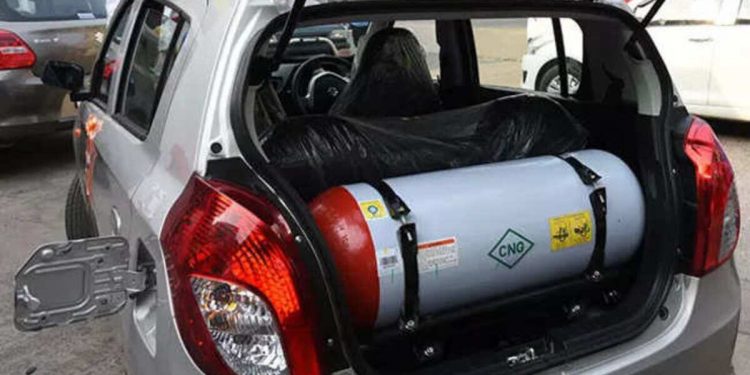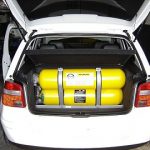The Nigerian federal government has distributed free Compressed Natural Gas (CNG) conversion kits and cylinders to companies for the conversion of vehicles of commercial transport operators in Abuja, Niger, Kogi, and Nasarawa states. This initiative is part of the Presidential Compressed Natural Gas Initiative (P-CNGI), aimed at converting one million commercial vehicles to run on CNG within the next two years.
During the FCT CNG Conversion Mobilisation program in Abuja, Michael Oluwagbemi, the program director of P-CNGI, highlighted the provision of free conversion kits and cylinders, emphasizing that the installation costs would also be covered. He stated that the initiative involves collaboration with various unions, including the Nigerian Union of Road Transport Workers (NURTW), the Road Transport Employees Association of Nigeria, and the Nigerian Association of Transport Owners (NARTO).
“The activity we are witnessing here today, which is the handover of these conversion kits and cylinders to various organizations, will enable you to convert your vehicles so they can run not just on petrol but also on gas, and to do it for free, is a big step in that direction,” Oluwagbemi said. He noted that approximately 400 conversion kits were distributed to commercial vehicle operators in the participating states and the Federal Capital Territory (FCT).
Najeem Yassin, Chairman of the Board of Trustees of NURTW and Vice President of the International Transport Workers’ Federation (ITF), underscored the importance of the initiative. He pointed out that converting vehicles to CNG, which is significantly cheaper than petrol, would help reduce transportation costs. “Mr. President has ensured, by working with NMDPRA, to keep concessionary pricing for gas for all vehicles, which will ensure that you are filling your vehicles at between N230 and N300 per kg,” Yassin said, emphasizing the potential economic benefits.
Aloga Ogbogo, Executive Secretary of NARTO, praised the initiative for its comprehensive approach to addressing transportation issues. He highlighted the positive multiplier effects of reducing petroleum prices, which could enhance workers’ salaries and lower costs for food and healthcare. “I urge Nigerians to be patient. A 1,000-kilometre journey starts with a step,” Ogbogo remarked, urging continued hope for improvements in the transportation sector.
This initiative is part of the government’s broader efforts to promote the use of alternative energy sources, improve transportation affordability, and support economic growth in Nigeria.










